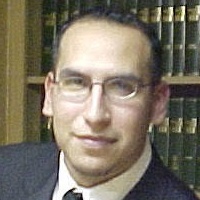 New Braunfels RICO Act Lawyers, Texas
New Braunfels RICO Act Lawyers, Texas
Sponsored Law Firm
-
 x
x

Click For More Info:
-
The Law Offices of Richard L. Cooper, P.A.
848 Brickell Avenue Suite 800 Miami, FL 33131» view mapDWI/DUI, Drug Trafficking, Felony Nationally Ranked Top 40 Under 40
With Richard L. Cooper you can expect a trusted confidant who will work diligently to fully understand your case and determine a road map to help you regain control of your life.
800-756-2781
Not enough matches for New Braunfels RICO Act lawyer.
Below are all New Braunfels Criminal lawyers.
Sponsored Lawyers
1-10 of 49 matches
Criminal, Divorce & Family Law, Wills & Probate, Adoption, Juvenile Law
Originally from Del Rio, Texas, Jesus is fluent in both Spanish and English. With an undergraduate degree in Economics and International Business from Baylor University and a JD from Baylor Law School, Jesus has combined the practice of law with his education in business strategy and negotiation. Jesus was admitted to the Texas State Bar in 2003. Jesus is the owner of the firm and his life outside work extends to family, golf, skiing and a strong interest in wine and travel. “I strive to educate my clients on how the law affects their particular case. As such, you will be in a position to make an informed decision on the best way to proceed with your case. The goal of my representation is to resolve your case in the most efficient and affordable manner possible. My legal experience includes hands on work in business law matters, contracts, debt collection, evictions, criminal and juvenile law, personal injury claims, family law, real estate transactions, and mediations.” – Jesus Lopez
(more)Estate Planning, Bankruptcy, Family Law, Criminal, Commercial Real Estate
I am a Board Certified Family attorney who practices in the San Antonio, Texas and surrounding counties. I have a great deal of experience regarding family law cases, from the complex and contentious to the simple and agreed. I understand military matters, in part because of my military service in the United States Air Force.
(more)



 Richard L. Cooper Miami, FL
Richard L. Cooper Miami, FL AboutMiami Attorney at Law
AboutMiami Attorney at Law ServicesCriminal Defense
ServicesCriminal Defense


